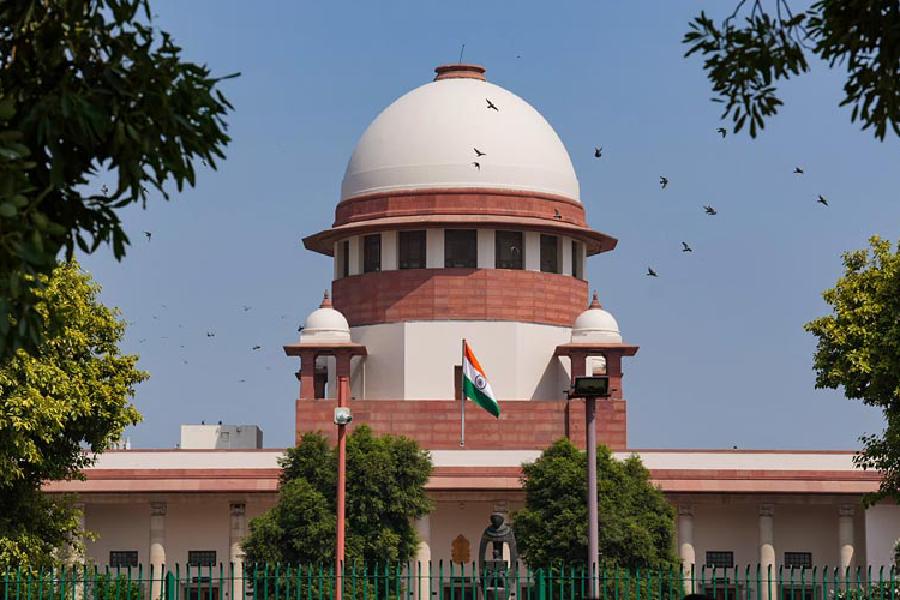The Supreme Court on Tuesday asked the Centre to place before it a “road map” and a “specific timeframe” by which it would restore statehood to Jammu and Kashmir, after which the government assured that it would come out with a statement on Thursday.
However, at the same time the Centre told the five-judge constitution bench hearing a batch of PILs challenging the abrogation of Article 370 that Ladakh’s Union Territory status “may remain for some time”.
“We will make a positive statement the day after tomorrow on Jammu and Kashmir after a meeting at the highest level. The Union Territory status of Jammu and Kashmir is not a permanent thing. So far as Ladakh is concerned, its Union Territory status is going to remain for some time,” solicitor-general Tushar Mehta told a bench headed by Chief Justice of India D.Y. Chandrachud.
The Centre’s assurance followed queries from the bench, which also had Justices Sanjay Kishan Kaul, Sanjiv Khanna, B.R. Gavai and Surya Kant, as to when full democratic process would be restored in Jammu and Kashmir in the form of statehood. The erstwhile state was bifurcated into the Union Territories of Jammu and Kashmir and Ladakh in August 2018.
“We do not want to bind you. We understand there are matters of national security involved. We know that preservation of the nation is the overriding concern. So, without putting you or the attorney (attorney-general R. Venkataramani) in a bind, can you seek instructions on whether there is some timeframe? Give us the specific timeframe as to when you will restore actual democracy. We want to record this.
“The government has to make a statement before us that the progression back to statehood will take place within a time. That this is not a Union Territory permanently,” Justice Chandrachud told Mehta.
The CJI added: “Democracy is important, although we agree that if we are to take the national scenario, reorganisation of the state can be done.”
In the post-lunch session, Mehta assured that he would make a formal statement on a specific timeframe and road map on Thursday. The court will be on a holiday on Wednesday owing to Raksha Bandhan.
Mehta recalled that the government had assured Parliament after the abrogation of special status that statehood would be restored to Jammu and Kashmir and read out Hindi transcripts of the statements made by Union home minister Amit Shah.
The bench asked the Centre how it intended to tackle the apprehension of critics that the power of carving out Union Territories cannot be exercised in a manner that would create an impression of abuse of power by the Union government in violation of the federal principles.
“You say it’s an issue of unrest and integration of a border state. If you concede that power to the Union of India, then how do you ensure that the abuse of power that they apprehend, the abuse of power will not be there?” the bench asked, to which Mehta said “this is a one-of-its-kind situation”.
However, Justice Kaul, who hails from Jammu and Kashmir, remarked: “It’s not one of a kind. We have had problems in Punjab, in the northeastern states...”
“The fact is unfortunately we cannot choose our neighbours. Your argument is of ‘border problems’. There are other border states where the situation may not be palatable. How do we distinguish between those border states and Jammu and Kashmir?” Justice Kaul asked.










